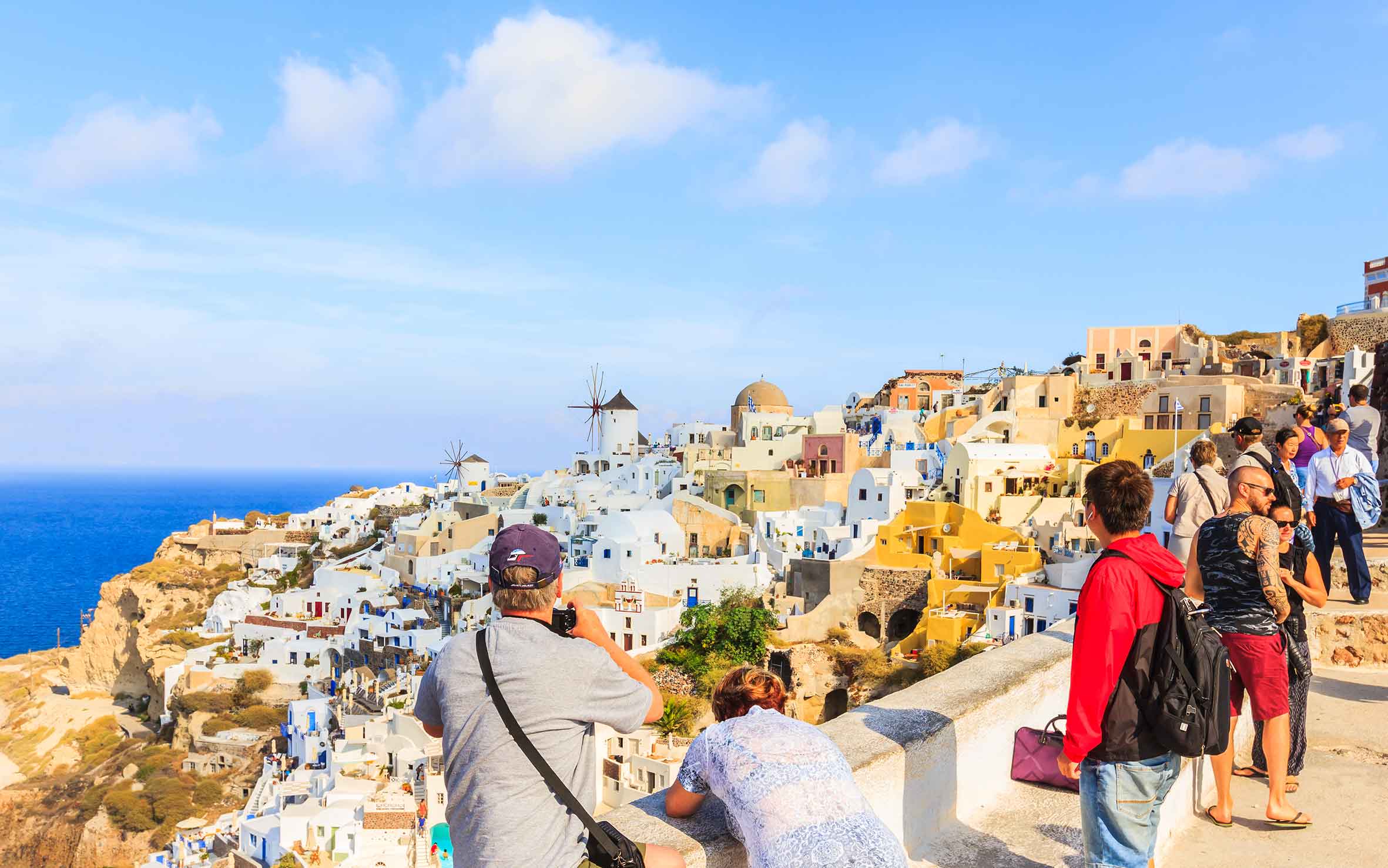When he was appointed to the job in 2018, Thomas Bareiss, a deputy minister at the Department of the Economy and Energy and Germany’s commissioner for tourism, probably didn’t expect it to be quite so challenging.
As the federal government’s point man on tourism, he is in charge of coordinating with his opposite numbers across Europe and elsewhere to ensure his country can safely welcome visitors from abroad this summer, but also that those among the tens of millions of Germans that normally travel beyond the German borders who also plan to do so this year, will be able to do so at minimum risk.
In normal times, a good portion of the German summer exodus – more than 4 million travelers last year – heads to Greece. Attracting as many as possible back this year has been a high priority for the Greek government. Speaking to Kathimerini, Bareiss is full of praise for its efforts: “Greece is doing a great job” in taking precautionary measures for the tourist season, he says, and is also “one of the front-runners in the European Union in the effort to reopen borders with common standards.”
“We want summer travel within the EU, especially to these very well-known destinations such as those in Greece, to be made possible,” Bareiss says. “Holidays this year will be different – there will be a lot more rules to follow. But I think holidays in Greece will be possible – it has dealt very effectively with the virus, it is a safe country, like Germany. I am on the phone frequently with Greek Tourism Minister Haris Theocharis, we try to find common standards on both sides so that travelers can move safely between our two countries.”
Germany’s top tourism official gives the following account of Germany’s wider border reopening plans: “We still have a worldwide travel warning until June 15. We want to lift those restrictions for EU and Schengen countries, as well as the UK, after that date; but for some regions within Europe where the virus is still not under control, or where there are not common safety standards – in airports, train stations hotels, restaurants – they may be extended beyond the 15th. We must work very closely within the EU on this.”
Bareiss spoke by teleconference the week before last with all of his EU counterparts, while on May 18, German Foreign Minister Heiko Maas spoke to the foreign ministers of the EU’s top 10 tourist hotspots – including Greece. What is the German government hoping to achieve with this initiative?
“Our aim is to closely follow the epidemiological data and, if there a new hotspot emerging within the EU, other Schengen countries or the UK, to have a common standard for the reimposition of movement restrictions. In Germany we have a rule: If a region records 50 new cases per 100,000 people, then the local authorities reimpose restrictions. We want a similar mechanism to be implemented across Europe. We have also proposed specific safety protocols for hotels, restaurants and so on.”
Bareiss mentions Italy as one country to which it might not be immediately possible for Germany to open up for tourism on June 15: “We have to follow the figures and decide when the right time is to open the borders.” He adds that there are parts of Germany, like the state of Mecklenburg-West Pomerania in the northeast, where significant restrictions are still in place – e.g. daytrips are not allowed.

The year of travel anxiety
The deputy minister is hesitant to predict how many German tourists will travel to Greece this year. But he points to one key negative factor: “Our older generation, pensioners, people aged over 60 or 70, are afraid to travel – they just want to stay at home. This is the case with my parents, for example, who are 70 and 74 years old.”
This is important, because older people “make up quite a share” of Germany’s total number of tourists who travel abroad: “For short-term travel, more than 25% of tourists who travel abroad are aged 65 and older – they have time, they have money, so normally they travel a lot. But they probably won’t travel as much this year.”
Beyond the issue of the greater vulnerability of older age groups to Covid-19, “there is a lot of concern about air travel, even though experts say that to travel by plane is not particularly dangerous because the air-filtering system makes it difficult for the virus to spread. Despite this, many people will prefer to travel by car this year.”
Asked for a ballpark figure of how much the number of German tourists traveling abroad would drop this year, he said: “It’s difficult to put a number on this. It all depends on how well we manage to keep the infection rates low and implement the necessary safety measures in the travel industry.”
The Greek government had mooted the idea of compulsory diagnostic tests for every foreign visitor in the 72 hours before they traveled, but it was shelved. Asked about the idea of testing before travel, Deputy Minister Bareiss says it “would be a good idea.” Especially “those tests that can deliver a result in 10-15 minutes,” made available on both sides – Germany as well as Greece, “could make travel safer.”
“We should think about doing this in all of Europe, in the airports,” he adds. “After all, no one wants a second wave of the epidemic, and the image of a resort in one region causing 100 people to fall ill would be very damaging for the tourist industry of that region; it would become synonymous with the coronavirus.” However, he cautions, “there are two issues with testing. One is the cost – if one such test is 60-80 euros, the cost for a family with two kids could exceed 300 euros. That is a lot of money – perhaps more expensive than the ticket for the plane. Secondly, there may be some people who will refuse to be tested – and we would have to see what to do about that.”
This article was originally published on ekathimerini.com












